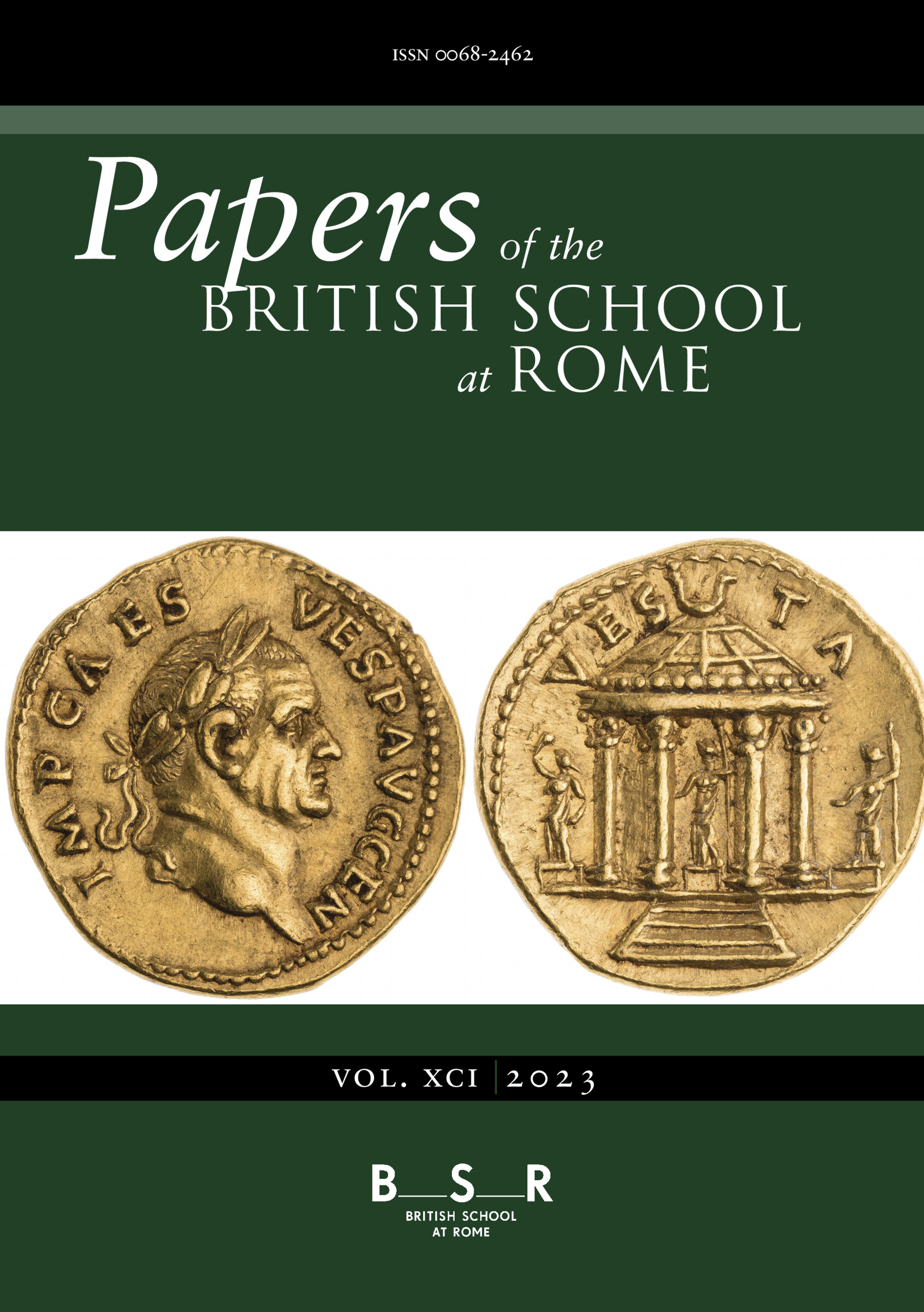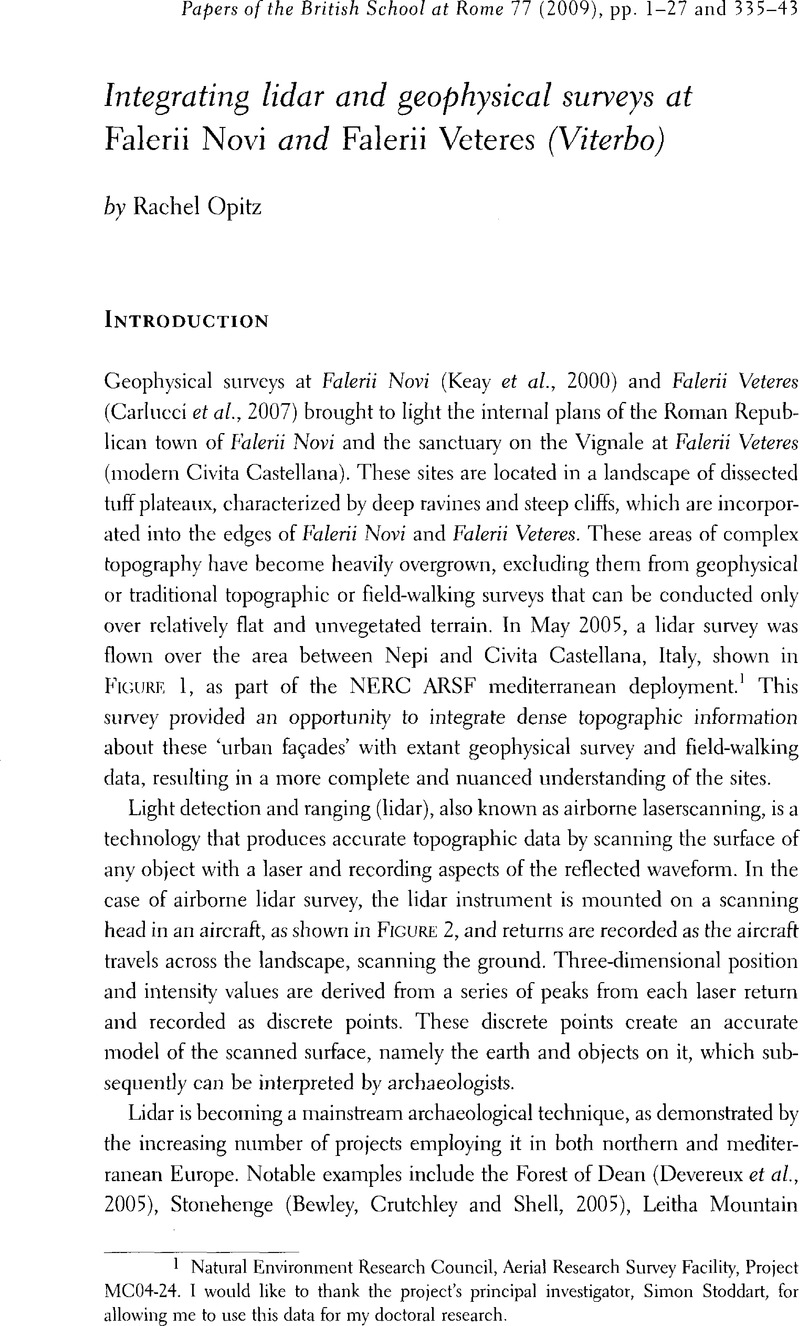Crossref Citations
This article has been cited by the following publications. This list is generated based on data provided by Crossref.
Hay, Sophie
Johnson, Paul
Keay, Simon
and
Millett, Martin
2010.
Falerii Novi: further survey of the northern extramural area.
Papers of the British School at Rome,
Vol. 78,
Issue. ,
p.
1.
Ferri, Giorgio
2011.
Due divinità di Falerii Veteres: Giunone Curite e Minerva Capta.
Mélanges de l'École française de Rome. Antiquité,
p.
145.
Filzwieser, Roland
Ivanišević, Vujadin
Verhoeven, Geert J.
Gugl, Christian
Löcker, Klaus
Bugarski, Ivan
Schiel, Hannes
Wallner, Mario
Trinks, Immo
Trausmuth, Tanja
Hinterleitner, Alois
Marković, Nemanja
Docter, Roald
Daim, Falko
and
Neubauer, Wolfgang
2021.
Integrating Geophysical and Photographic Data to Visualize the Quarried Structures of the Roman Town of Bassianae.
Remote Sensing,
Vol. 13,
Issue. 12,
p.
2384.
Andrews, Margaret
Bernard, Seth
Dodd, Emlyn
Fochetti, Beatrice
Kay, Stephen
Liverani, Paolo
Millett, Martin
and
Vermeulen, Frank
2023.
THE FALERII NOVI PROJECT.
Papers of the British School at Rome,
Vol. 91,
Issue. ,
p.
9.



